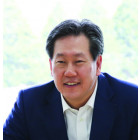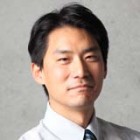Video
Events
Recent Events
Zhu Feng, “China's Rise, Domestic Dynamics and Implications of Beijing's Policy for the Korean Penin
- Expert
- Hahm Chaibong
- Hit
- 890
- Date
- 11-07-21 15:00
On July 22, the Asan Institute for Policy Studies held the 6th Asan Experts Series with Professor Zhu Feng of Peking University on “China's Rise, Domestic Dynamics and Implications of Beijing's Policy for the Korean Peninsula”
Outline

Hahm Chaibong
President
Dr. HAHM Chaibong is the president of the Asan Institute for Policy Studies. Previously, he was a senior political scientist at the RAND Corporation in Santa Monica, California, professor in the School of International Relations and the Department of Political Science as well as the director of the Korean Studies Institute at the University of Southern California, Director (D-1) of the Division of Social Sciences Research & Policy at UNESCO in Paris, and a professor in the Department of Political Science at Yonsei University. Dr. Hahm is the author of numerous books and articles, including “China’s Future is South Korea’s Present,” Foreign Affairs, (Sep/Oct 2018), Hanguk Saram Mandeulgi (Becoming Korean), Vols. I, II, (Asan Academy, 2017), “Keeping Northeast Asia ‘Abnormal’: Origins of the Liberal International Order in Northeast Asia and the New Cold War,” Asan Forum (Sep., 2017), “South Korea’s Miraculous Democracy,” Journal of Democracy (Jul., 2008), “The Two South Koreas: A House Divided,” The Washington Quarterly (Jun., 2005), and Confucianism for the Modern World (co-edited with Daniel A. Bell, Cambridge University Press, 2003).

Bong Youngshik
Visiting Research Fellow
Dr. BONG Youngshik is a Visiting Research Fellow at the Asan Institute for Policy Studies. Previously, Dr. Bong was an assistant professor in the School of International Service at American University in Washington, D.C. He was also a Freeman Post-doctoral Fellow at Wellesley College and an assistant professor of Korean Studies at Williams College. His research interests include the interplay between nationalism and security issues such as historical and territorial issues in East Asia, anti-Americanism, and the ROK-US Alliance. He is the author of “Past Is Still Present: The San Francisco System and a Multilateral Security Regime in East Asia,” Korea Observer (2010) and co-editor of Japan in Crisis: What It Will Take for Japan to Rise Again? (with T.J. Pempel, The Asan Institute for Policy Studies, 2012). Dr. Bong received his B.A. in political science from Yonsei University and his M.A. and Ph.D. in political science from the University of Pennsylvania.



